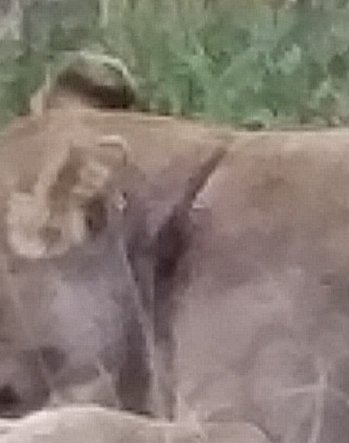1600 illegal snares collected in Kruger Park this year
Pretoria News / 5 December 2018, 06:55am / Brenda Masilela

A buffalo skull with a snare still attached to its head and chin. The bull was found about three to four months ago in the Kruger National Park. Poachers kill buffalo and kudu for the bush meat trade while hyenas and lions are killed for muti. SIBONGILE MASHABA
RANGERS at the Kruger National Park have collected more than 1600 illegal snares this year alone, and the crude devices are wreaking havoc on the wildlife in the world famous reserve.
Johan de Beer, K9 manager and a ranger at Kruger, said they had seen a devastating rise of illegal hunting over the past two years in the western park boundary up to Punda Maria.
He said this was due to the growing bush meat trade in the area.
“Snares have been an issue at the park. Traditionally that was the poaching the field ranger used to fight, but there has been a big increase in the last two years in the areas where it’s been done.”
And while trade in bush or wildlife meat is the primary driver of the snare poaching, he said that “when they target the hyena and lions, it’s for the muti market”.
De Beer has kept a buffalo skull which still has a snare on it to demonstrate how the animals are brutally caught in it.
“I didn’t clean up the skull yet it’s good for people to see how devastating these things are.”
He said the buffalo walked around with the snare stuck inside its skull for about four months.
Although De Beer couldn’t give an exact number, he said he had to put down a lot of animals which were found with snares and debilitating injuries which meant they could not be saved.
“We get a lot of lions and hyenas with snares around their neck sometimes elephants get snares around their feet and we try to save it, but if the damage is too severe and there’s nothing we can do, we put down the animal.”
While most poaching targets rhino and elephants, De Beer said the snares are usually meant for buffalo and impala. He said they sometimes also find bird and fish snares.
De Beer said the perpetrators usually set out their snares around rivers and drinking holes in the middle of the night and usually come back in the morning before the rangers start patrolling.
He said sometimes lions and hyenas would come and grab the animals caught up in snares before either poachers or rangers could get there.
“This is very dangerous because the other time they caught a big male lion which was feasting on the carcass and they killed it.”
De Beer added that he was not happy with the sentences handed down to the offenders when they are caught.
“I personally think the sentencing is not harsh enough they are sentenced to 3-4 years if they don’t pay a fine and sometimes the cases get dismissed by the courts.”
Snare poaching is just one more assault on the wildlife riches the country’s rangers are tasked to prevent. - African News Agency (ANA)
https://www.iol.co.za/pretoria-news/160 ... r-18387766

